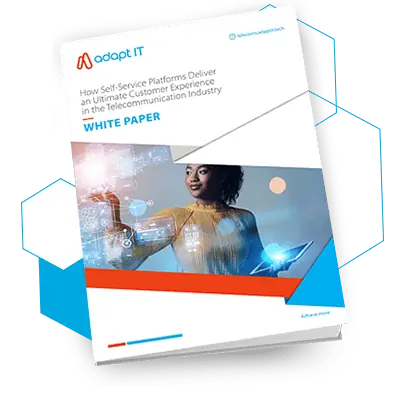Money laundering is a problem for many businesses and organisations globally, which is why they are turning to Anti-Money Laundering (AML) solutions to protect their customers and revenue. AML includes policies, laws, and regulations to prevent financial crimes. To enhance compliance with these laws and policies, many businesses turn to technology and software, particularly Anti Money Laundering solutions, to help identify, manage and stop money laundering, financial crimes, fraud, identity theft, and more.
Table of Contents
ToggleWhat is Money Laundering?
In simple terms, money laundering is the process of taking illegally obtained money and making it appear to have come from a legitimate source. Money laundering is a crime and is illegal. In this case, criminals often put the money through a series of commercial transactions to “clean” it and make it seem legitimate and legal. An example of this would be if money was placed into a business account and disguised as sales revenue. There are three main stages of money laundering that criminals follow, these include:
- Placement – The initial phase sees cash moved away from its source, which is misrepresented or concealed. The money is then placed into circulation via certain businesses, financial institutions, casinos, shops, or currency exchange centres.
- Layering – The layering phase’s purpose is to make it challenging to detect laundering activities, thereby making it difficult for law enforcement to trace the illegal proceeds.
- Integration – Previously laundered money is filtered back into the economy mainly through the banking system, appearing as normal legal business earnings.

The landscape of Anti Money Laundering in South Africa
The reality is that money laundering and financial crimes extend to all levels of banking and mobile money. How big is this problem in South Africa and globally? The answer is that it is having a tremendous impact on business and economies. These crimes and activities generate financial flows that divert resources away from economic and social uses, impacting every sector of the economy.
It has been estimated that the amount of money laundered globally in one year is 2% to 5% of global GDP, or US$800 billion to US$2 trillion. In South Africa, it is estimated that between $10 billion and $25 billion is lost every year in illicit financial activities. Money laundering is also often accompanied by other criminal activities that include smuggling, illegal arms sales, terrorism financing, market manipulation, tax evasion, embezzlement, insider trading, bribery and computer fraud schemes, and more.
Many governments have put different anti money laundering regulations and guidelines in place, in the form of AML compliance programs. In South Africa, the Financial Intelligence Centre Act (FICA) and the Prevention of Organised Crime Act (POCA) aim to combat money laundering. The Financial Intelligence Centre (FIC) conducts audits and implements control to assist in preventing money laundering.
South Africa is also a member of the Financial Action Task Force (FATF), the global money laundering and terrorist financing watchdog. This inter-governmental body sets international standards that aim to prevent these illegal activities and the resulting harm they cause to society. As a policy-making body, the FATF works to generate the necessary political will to bring about national legislative and regulatory reforms in these areas.
These supervisory bodies and organisations regulate and outline several regulations and policies that financial institutions, governmental organisations and businesses need to ensure are followed in relation to anti-money laundering compliance. This includes identifying and verifying the customer, determining customer risk levels, keeping customer information up to date and recording customer information.
Business, governments and financial institutions are turning to technology, specifically Anti-Money Laundering solutions, to assist in the tracking and monitoring of potentially fraudulent and illicit financial activity.
Why Is AML Compliance Important for any business?
Anti Money Laundering compliance is essential for businesses for a number of reasons. From a customer perspective, it enhances customer experience and loyalty. Customers want to know that they are protected, safe and secure from financial crime. They also want to know that the businesses they support are doing their AML due diligence.
From a business point of view, AML compliance minimises risk and identifies related risks. With innovative technology, you can quickly flag possible money laundering activities through watchlist screening and risk assessment. The use of machine learning and artificial intelligence technology reduces the time and resources required to identify and track this kind of activity.
As a business, time is money, and you need to enhance efficiency where possible. By ensuring AML compliance through the use of technology, you are able to reduce time consuming investigations, achieve higher alert efficiency and improve on suspicious activity reporting.
In the case of AML compliance, if your business is scammed by criminals and money laundering you will be protected from prosecution because you have all the necessary steps in place. You will have peace of mind knowing that you have complied with AML legislation and that you have done your due diligence as a business.

How Anti Money Laundering Solutions Can Protect Your Business
AML solutions, like the ones provided by Adapt IT Telecoms, assist in protecting your business from far reaching financial crime, which extends to all levels of banking and mobile money. This technology utilises machine learning to:
- Reduce the time and resources needed to identify and flag money laundering activities
- Minimise risk with real-time watchlist screening
- Improves efficiency by providing higher alert rates and reporting on suspicious activity
- Ensures compliance across all AML legislation that protects your organisation
This technology also allows for the simplification and streamlining of the process of identifying and detecting suspicious behaviour and facilitates this by:
- Filtering customer data
- Classifying the data according to a level of suspicion
- Continuously inspecting data for discrepancies
The main goal of this AML solution is to help detect and report suspicious activity including offences related to money laundering and terrorist financing, such as securities fraud and market manipulation. This solution provides you with an early warning system that identifies irregularities, errors, possible fraud and money laundering. It also helps in identifying, reporting, and blocking suspicious financial activities. This is all monitored automatically around the clock using Artificial Intelligence, ensuring that you, as a business, are always one step ahead of financial crime.
Conclusion
Money Laundering continues to be a significant challenge globally for governments, financial institutions, and businesses. One way of reducing these types of financial crimes and their impact on the economy is to utilise technology like the Adapt IT Telecoms Anti-Money Laundering solutions. This technology not only ensures your Anti Money Laundering compliance but enables you to flag and identify any suspicious behaviour or possible criminal activities, protecting your customers and revenue.

Join the Financial Services Revolution with FinTech
Find new revenue streams, tap into the potential that the unbanked market holds, add value to customers and enhance business profitability.

As the Global Head of Marketing and Business Development with 20 years of experience, Agnieszka’s expertise lies in the practical implementation of digital and traditional marketing strategies for B2C and B2B companies. Through her long-term, client-focused, strategic approach, and branding experience, she continues to develop innovative marketing plans that yield significant results. Now working in the SaaS industry, she oversees a multitude of solutions within the telecommunications industry including Customer Experience & Self-service, VAS, NextGen, IoT, FinTech, and Advanced Analytics.




